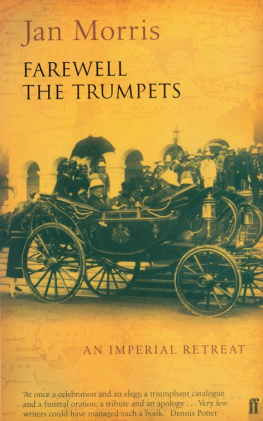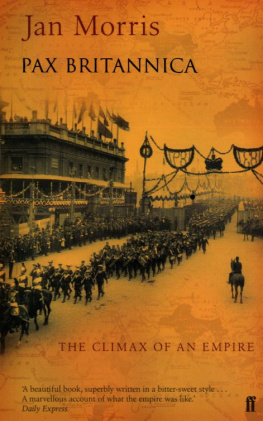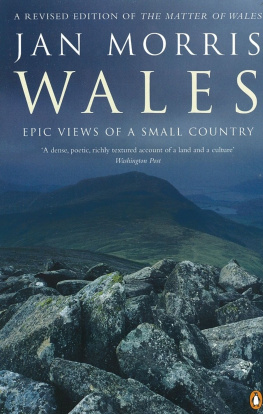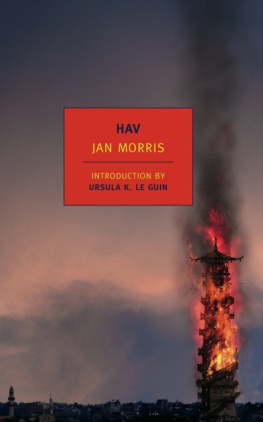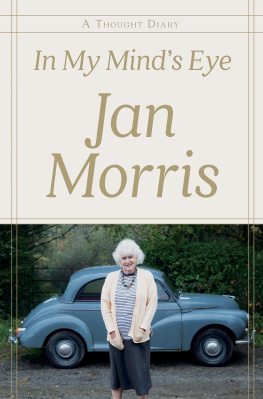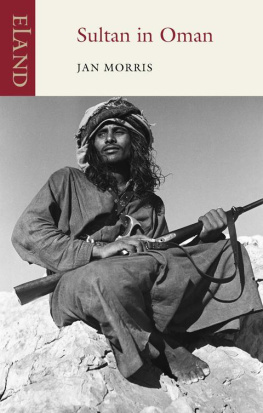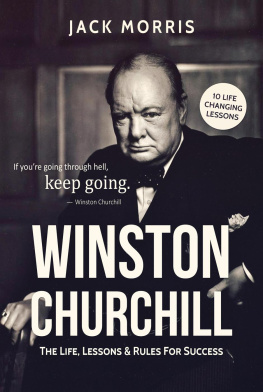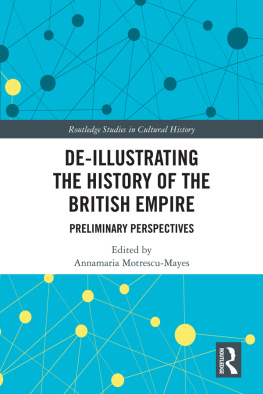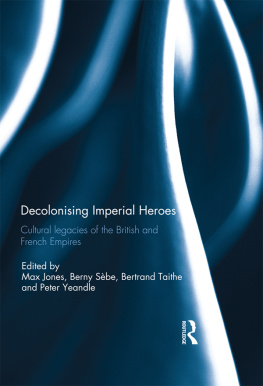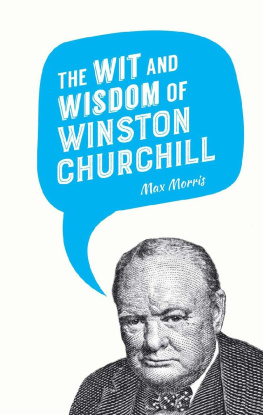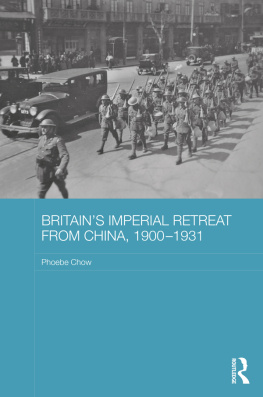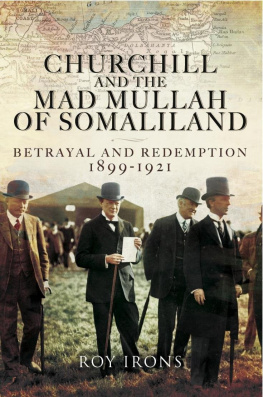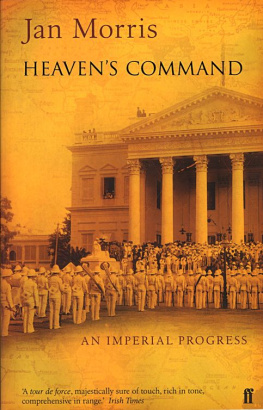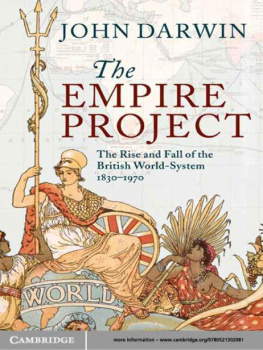Jan Morris - Farewell the Trumpets: An Imperial Retreat
Here you can read online Jan Morris - Farewell the Trumpets: An Imperial Retreat full text of the book (entire story) in english for free. Download pdf and epub, get meaning, cover and reviews about this ebook. year: 1998, publisher: Faber & Faber, genre: History. Description of the work, (preface) as well as reviews are available. Best literature library LitArk.com created for fans of good reading and offers a wide selection of genres:
Romance novel
Science fiction
Adventure
Detective
Science
History
Home and family
Prose
Art
Politics
Computer
Non-fiction
Religion
Business
Children
Humor
Choose a favorite category and find really read worthwhile books. Enjoy immersion in the world of imagination, feel the emotions of the characters or learn something new for yourself, make an fascinating discovery.
- Book:Farewell the Trumpets: An Imperial Retreat
- Author:
- Publisher:Faber & Faber
- Genre:
- Year:1998
- Rating:5 / 5
- Favourites:Add to favourites
- Your mark:
- 100
- 1
- 2
- 3
- 4
- 5
Farewell the Trumpets: An Imperial Retreat: summary, description and annotation
We offer to read an annotation, description, summary or preface (depends on what the author of the book "Farewell the Trumpets: An Imperial Retreat" wrote himself). If you haven't found the necessary information about the book — write in the comments, we will try to find it.
Farewell the Trumpets: An Imperial Retreat — read online for free the complete book (whole text) full work
Below is the text of the book, divided by pages. System saving the place of the last page read, allows you to conveniently read the book "Farewell the Trumpets: An Imperial Retreat" online for free, without having to search again every time where you left off. Put a bookmark, and you can go to the page where you finished reading at any time.
Font size:
Interval:
Bookmark:
For
MARK MORRIS
PaxTibi,Marce
SetinthisstormyNorthernsea,
Queenoftheserestlessfieldsoftide,
England!whatshallmensayof thee
Beforewhosefeettheworldsdivide?
O SCAR W ILDE
FarewelltheTrumpets, though complete in itself, is the third volume of a trilogy evoking the rise and fall of the Victorian Empire. It is the right-hand panel, as it were, of a triptych, and brings the story to a somewhat tattered conclusion to the 1960s, when the British Empire which had once dominated the globe was reduced to a ragbag of islands and an amorphous society of independent States called simply The Commonwealth. I wrote the book, concluding my trilogy, in 1977, when I knew that many of my readers would still remember this decline for themselves, and had perhaps played their own parts in hastening or staunching it; today, two decades on, even the post-imperial generation is passing by, and the mass of the British people know little of their lost Empire, and care still less.
This volume certainly offers no objective picture of its last years. I have been concerned not so much with what the British Empire was or meant, as what it felt like or more pertinently, perhaps, what it felt like to me, in the imagination or the life. For towards the end of the book I become an eye-witness, and immediately less reliable. I do not come from an imperial family, and could write about the nineteenth-century Empire with absolute detachment, but in the first half of the twentieth century few of us were immune to the imperial effects. Even my poor father was gassed for his Empire. Even my poor Uncle Geraint, fresh from his cello at Monmouth School, was whisked away to the Indian Expeditionary Force in France, and never came home again. Even I found myself, for a decade of my life, embroiled in the imperial mesh, as I followed the retreating armies of Empire from one after another of their far-flung strongholds. Most of us were imperialists in the end, however gentle our instincts, and hardly a reader of my generation will feel altogether aloof to this narrative, or impartial to its judgements.
The British Empire really ended when India, the greatest of all its possessions, achieved national independence in 1947, but there was a late coda to the long decline when, just fifty years later, the Crown Colony of Hong Kong was returned to the sovereignty of China. The ceremonies that surrounded this event in 1997 astonished and intrigued a world to whom the idea of an imperial Britain seemed an almost forgotten anachronism, but to me they seemed curiously unsatisfying. I went to Hong Kong for the occasion, and was disturbed by the sensation that there was nothing nobly conclusive to it: for the first time the British were relinquishing authority not to the inhabitants of a colony, but to a third Power and an unreliable, volatile sort of Power at that. Were they right to go? Had they done their best for the people of Hong Kong? Would their association with the colony be remembered with admiration or with shame? Did it really matter anyway? Nobody really knew what it all portended: it suggested to me an avant-garde movie, when you leave the cinema puzzled and disturbed, not quite sure what the plot is all about.
So when the royal yacht Britannia sailed out of Hong Kong harbour with the Prince of Wales on board past the massed and gleaming ranks of the skyscrapers of the richest of all the British Crown Colonies with the royal standard flying and a warship of the Royal Navy in grey attendance somehow the spectacle failed to touch me. The pipers might skirl a farewell, the soldiers march and Rule Britannia echo among those Chinese hills, but it all lacked the old conviction even the conviction of the long withdrawal. Mine is an aesthetic view of Empire, and there is no denying that as the flare of the imperial idea faded, and the nation lost interest, so its beauty faded too. It had not always been a pleasant kind of beauty, but it had been full of splendour and vitality, and when the Empire lost its overweening confidence, its sense of providential virtue, its forms became less striking and its outlines less distinct. My book, therefore, is sad without being regretful. It was time the Empire went, but it was sad to see it go: and so these pages too, while I hope they are not blind to the imperial faults and weaknesses, are tinged nevertheless with an affectionate melancholy
Formenarewe,andmustgrievewheneventheshade
Ofthatwhichoncewasgreatispassedaway.
The volume begins with Victorias Diamond Jubilee of 1897 and concludes with Churchills funeral. I hope my readers will discover in themselves, between these ceremonial book-ends, at least some of the mingled sensations of admiration, dislike, amusement, pity, pride, envy and astonishment with which I have watched and pictured the passing of the British Empire.
TREFAN MORYS , 1998
Sayfarewelltothetrumpets!
Youwillhearthemnomore.
Buttheirsweetsadsilveryechoes
Willcalltoyoustill
Throughthehalf-closeddoor.
Part One
THE GRAND ILLUSION: 18971918
page
page
page
page
page
page
page
page
page
Part Two
THE PURPOSE FALTERS: 19181939
page
page
page
page
page
page
Page
page
page
page
page
Part Three
FAREWELL THE TRUMPETS: 19391965
page
page
page
page
page
page
page
page
page
Q UEEN Victoria of England went home happy on her Diamond Jubilee day, June 22, 1897. History had humoured her, as she deserved. The sun had shone all dayQueens weather, the English called itand there was nothing artificial to the affection her people had shown during her hours of celebration. She had passed in procession through London intermittently weeping for pleasure, and studded her diary that evening with joyous adjectives: indescribable, truly marvellous, deeply touching.
It was more than a personal happiness, more even than a national rejoicing, for the British had chosen to commemorate the Diamond Jubilee as a festival of Empire. They were in possession that day of the largest Empire ever known to history, and since a large part of it had been acquired during the sixty years of Victorias reign, it seemed proper to honour the one with the other. It would mark this moment of British history as an Imperial moment, a Roman moment. It would proclaim to the world, flamboyantly, that England was far more than England: that beneath the Queens dominion lay a quarter of the earths land surface, and nearly a quarter of its peopleliterally, as Christopher North the poet had long before declared it, an Empire on which the sun never set.
So the day had been a proud, gaudy, sentimental, glorious day. This was findesicle. The public taste was for things theatrical. Statesmen and generals were actors themselves, and here was the brassiest show on earth. Through the grey and venerable streets of the capitalthe greatest city since the ruin of Thebesthere had passed in parade a spectacle of Empire. There were Rajput princes and Dyak headhunters, there were strapping troopers from Australia. Cypriots wore fezzes, Chinese wore conical straw hats. English gentlemen rode by, with virile moustaches and steel-blue eyes, and Indian lancers jangled past in resplendent crimson jerkins.
Font size:
Interval:
Bookmark:
Similar books «Farewell the Trumpets: An Imperial Retreat»
Look at similar books to Farewell the Trumpets: An Imperial Retreat. We have selected literature similar in name and meaning in the hope of providing readers with more options to find new, interesting, not yet read works.
Discussion, reviews of the book Farewell the Trumpets: An Imperial Retreat and just readers' own opinions. Leave your comments, write what you think about the work, its meaning or the main characters. Specify what exactly you liked and what you didn't like, and why you think so.

